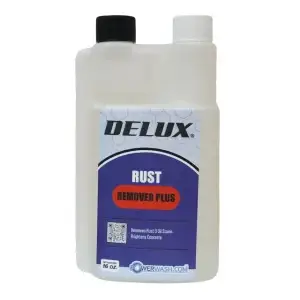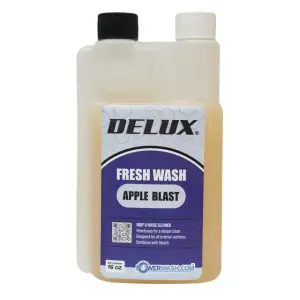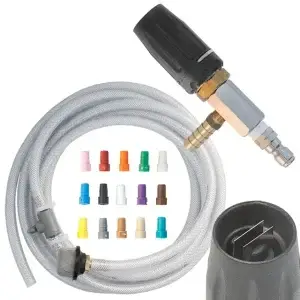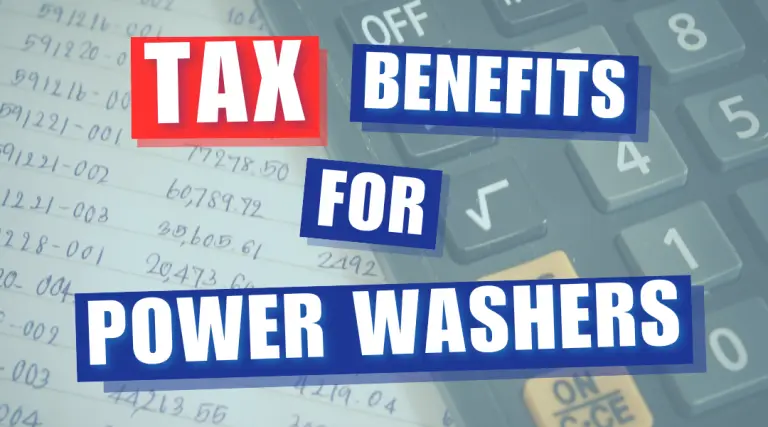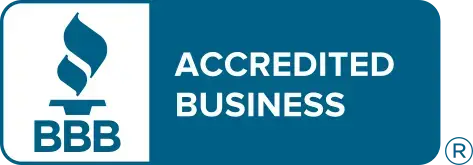Subscribe To Our Newsletter
Stay in the know on the latest products, deals, events, tips & tricks.
Social Media
Popular Products
-
Awning Cleaning
Rust Remover Plus Pressure Washing Chemical: Achieve Fast, Professional Results!
$14.47 -
-
-
All Pressure Washers
Complete Professional Pressure Washing Trailer. The Tow Pro Trailer, Super Skid, Pro, VBelt, Gas, 20 Honda/General, 5.5@3500
$18,374.97
How do I Remove My Name from Google Search Results?
Your name, business name, face, home address, and other personal details will appear online even if you have never touched a computer, and that information could be costing you millions in lost revenues. You should know what people will find when they search for you online, and actively work to manage your reputation.
The first step is to discover what people will find when they search for you. Type your name into several search engines, and see what comes up. Try Google, Bing, Ask.com, Dogpile, and Duck Duck Go. Different search engines may return different results. Look at images if image results are available. Search for usernames, aliases, and all name combinations (ie: First Name, Middle Name, Last Name / First Name only / your name + your business name / your name +your city etc.)
You might be stunned, and overwhelmed. Don’t panic! Most people will never click past page two of search results. So concentrate on the first 20 entries. Then break the results into two groups. Some content you control like your Facebook page, and some content you don’t control like a bad review on Yelp. Start with the content you control. Delete old profiles, blog posts, and unflattering comments. Then search for those comments, and blog posts to find other places where they may have been shared or plagiarized.
If you find an objectionable image, use Google’s image search tools to look for other places where that image might be online. Look for a little camera in the Google image search box. When you click the camera, it should give you a prompt to paste a url, or upload a file. When you click search, Google will do its best to show you the other places where the image has been copied. It will even show you visually similar images. Visit all of the pages that you control, and remove the objectionable images.
Digital information is a little like a hydra monster. You can cut off one head, but another may grow where you were not expecting. Google has a tool called “Google Alerts” that can help you track your name, and business name online. The process is simple. Just visit the Google Alerts page and enter any search query. Then when your query appears in a new story, blog, video description, or discussion board, google will send a link to your email.
If information comes up on a page that you don’t control, you can contact the page administrator and ask to have it removed. Be professional! Remember that anything you write in an email could also end up on their website. Never threaten legal action! If the content is really malicious, defamatory, and FALSE, you should contact your lawyer and let them handle the situation.
Avoid the chain letter scams that promises to protect you from social media networks “stealing your private information.” These letters just make you look foolish. If you are really concerned that the “private” information that you shared in a public forum will get “stolen” it’s best not to share that information in the first place. As long as you use a social media site, you are bound by the “Terms of Use” policy of that site. You can’t simply write a new deal for yourself that voids the agreement you already made. Leave the contract negotiations to your lawyer.
If you are responding to a bad review, it is best NOT to ask for it to be removed. Use it as an opportunity to show people how you handle customer service issues. Write a reply, and make it right. We all make mistakes, and have bad days sometimes. The way you fix your mistakes can become positive publicity.
You may find a lot of content that is beyond your control. Even if you do manage to get everything removed, it may take months before search results change. Some links may never disappear, but go to a “404 Page Not Found” page. You may be thinking, “Great, I don’t care. As long as I never see those pictures again!” Hold on, sit back down, because you are not done yet. A search that returns list of broken links is suspicious, and a search that doesn’t show any results at all is downright creepy!
The next step is to start posting the content that you want people to find. Use social media, and blogs to share things that people might want to know about you. Pintrest is a great place to share photos of things you like, or things you have learned. Twitter is a great way to let people know when you have just read a great article, or blog post. Create several profiles, and post to them often.
Get involved in your community. Professional groups and nonprofits are always looking for photo ops, blog posts, and social media content. Any positive press will help push negative content down on search result pages.
If you have personal accounts like Amazon, Netflix, or E trade, use a unique screen name for each account. You should also always make sure that your business name is very different from your screen names. This should make it harder for people who are searching for you to find these accounts.
You may be thinking “Gee, that’s nice, but what if I want to use my real name to have a personal life online.” Personal posts are fine, but don’t pull down your pants on Facebook if you wouldn’t do it in front of your customer’s face. Never post anything that you wouldn’t want to see as front page news. For example, “We’re on our way to Europe for two whole weeks. Please come break into our house while we are gone!” Consider everything public, and put the best of yourself online.
Information about you is out there in black and white. Never lie about yourself. If you frequently post political, pornographic, or religious content, you need to be prepared to answer questions about those posts. If there is no way to answer a question without hurting your reputation, it’s best to stay quiet. If you do want to pick a fight, and maybe become the next civil rights leader, be prepared to face any and all consequences.
Some people like to say that they have nothing to worry about, because they never do anything wrong. That argument assumes that everyone else is just perfect and honest as the self-righteous, out of touch idiot that made that statement. Can you seriously not think of one person or group that would benefit if they could make you look bad? Some business owners have even been known to post bad reviews on competitor’s pages. You are your own publicist. Use tools like Google Alerts to monitor all of your names and screen names. Remove content that hurts your reputation. Post content that builds your reputation. You cannot afford to ignore it any longer!
Share This Post
More To Explore
Tax Benefits For Power Washing Professionals
Navigating the complexities of tax planning can be a daunting task for power washing professionals, yet it’s a crucial aspect …
Top 5 Must-Have Attachments to Elevate Your Power Washing Efficiency and Precision
Attachments for power washing systems are essential tools that significantly enhance the effectiveness, speed, and precision of professional cleaning jobs. …
When Should You Get A Hot Water Power Wash Machine?
When a Hot Water Power Washing System is Your Best Choice When deciding between a hot water power washing machine …
The Science Behing Power Washing
The Science Behind Effective Power Washing The science behind power washing is a balance of pressure, water, and chemical solutions …



